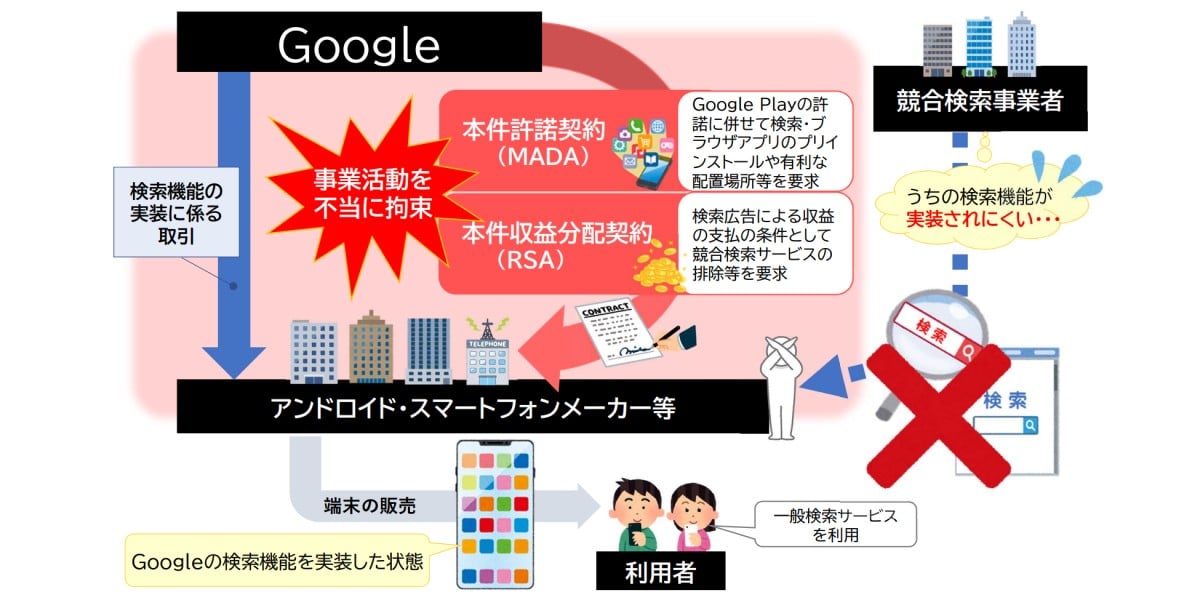
"Japan's Fair Trade Commission has ordered Google to cease requiring manufacturers of Android devices to pre-install its apps, citing violations of the country's Antimonopoly Act."
"JFTC's investigation found that Google's Mobile Application Distribution Agreements restrict competition and hinder market entry for new players, demanding changes to how Google operates its business."
"Despite Google's disappointment, the company maintains that its agreements are pro-competitive and have encouraged product innovation, enhancing consumer choice in the market."
"As Japan's first action against a major American tech firm, this case symbolizes a growing global scrutiny towards monopolistic practices by large tech companies."
Japan's Fair Trade Commission has mandated that Google halt its practice of enforcing Mobile Application Distribution Agreements (MADAs) that compel Android device manufacturers to include specific Google applications. The JFTC's ruling stems from concerns that these practices limit market competition, adversely affecting new entrants and consumer choice. Google expressed disappointment, arguing that their agreements fostered innovation and competitiveness in the industry. This action marks a significant step in global efforts to regulate major tech companies' influence, as Japan also investigates Google's advertising practices and has threatened fines for anti-competitive behaviors in the digital market.
Read at Theregister
Unable to calculate read time
Collection
[
|
...
]